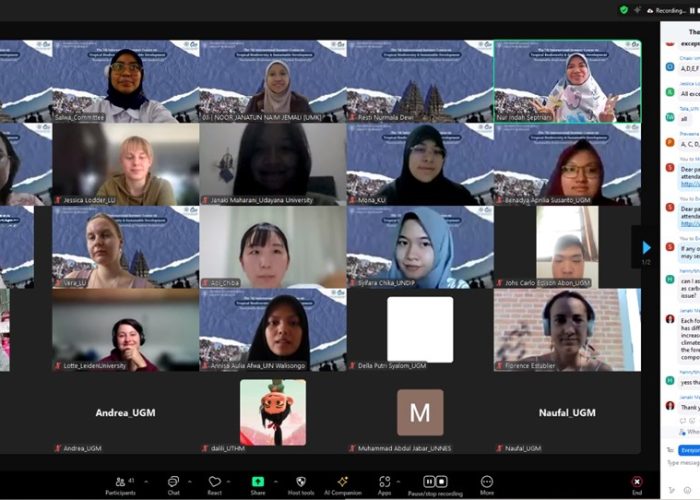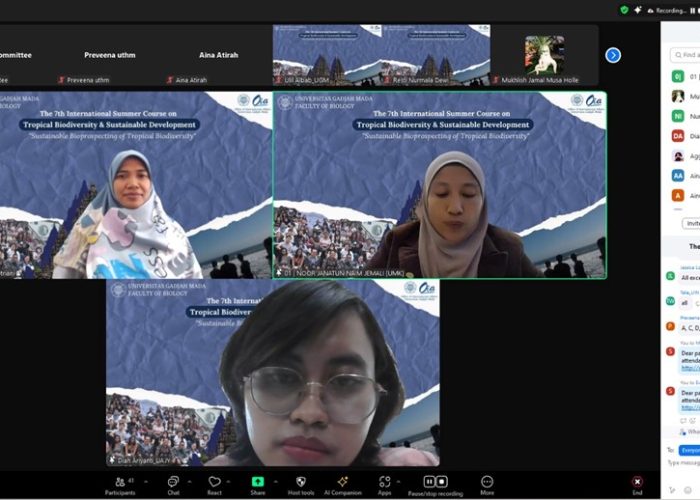Yogyakarta, 15 July 2024 – The 7th International Summer Course on Tropical Biodiversity and Sustainable Development continues to provide inspiration and education by raising the topic “Sustainable Bioprospecting on Tropical Biodiversity.” The series of activities began with the opening which took place on Monday (15/7) afternoon which was followed by online lectures.
The International Summer Course on Tropical Biodiversity and Sustainable Development (ISC) is an annual activity regularly held by the Faculty of Biology, Universitas Gadjah Mada. In its seventh year, 37 students from 6 countries (Indonesia, Malaysia, Philippines, Japan, Pakistan and Thailand) and 12 universities will participate in all activities and 18 participants from 5 other countries (Myanmar, Netherlands, Algeria, India, and Egypt) participated in the online lecture series. ISC also involves experts from various countries to participate as speakers including from Malaysia, Great Britain, Japan, Australia, South Korea, Thailand, the Philippines, Egypt and Indonesia.
The ISC’s chief executive, Mukhlis Jamal Musa Hole M.Env.Sc., D.Phil., gave a speech at the online opening on Wednesday (15/7). He also explained series of online and offline activities that would be carried out until early August. Activities will focus on education on sustainable bioprospecting and tropical biodiversity in Indonesia.
The agenda continued with an online lecture moderated by Nur Indah Septriani, S.Si., M.Sc., Ph.D. and speaker Ts. Dr. Noor Jannatun Naim Binti Jemali from the University of Malaysia Kelantan. Dr. Jan gave a lecture focusing on the prospects for forest resources. In her lecture, Dr. Jan highlighted the various functions of forests that produce wood and non-wood products. She emphasized the critical challenge of tropical forest degradation and deforestation, and noted forest loss of 90% in the last six decades. This alarming rate of deforestation underscores the importance of continued bioprospecting and conservation efforts.
This first lecture is expected to provide knowledge about the urgency of conservation and preservation of forests and ecosystems in supporting sustainable development. Efforts to support the issue of forest conservation and climate change are also being promoted through ongoing collaborative discourse between the state and universities.


